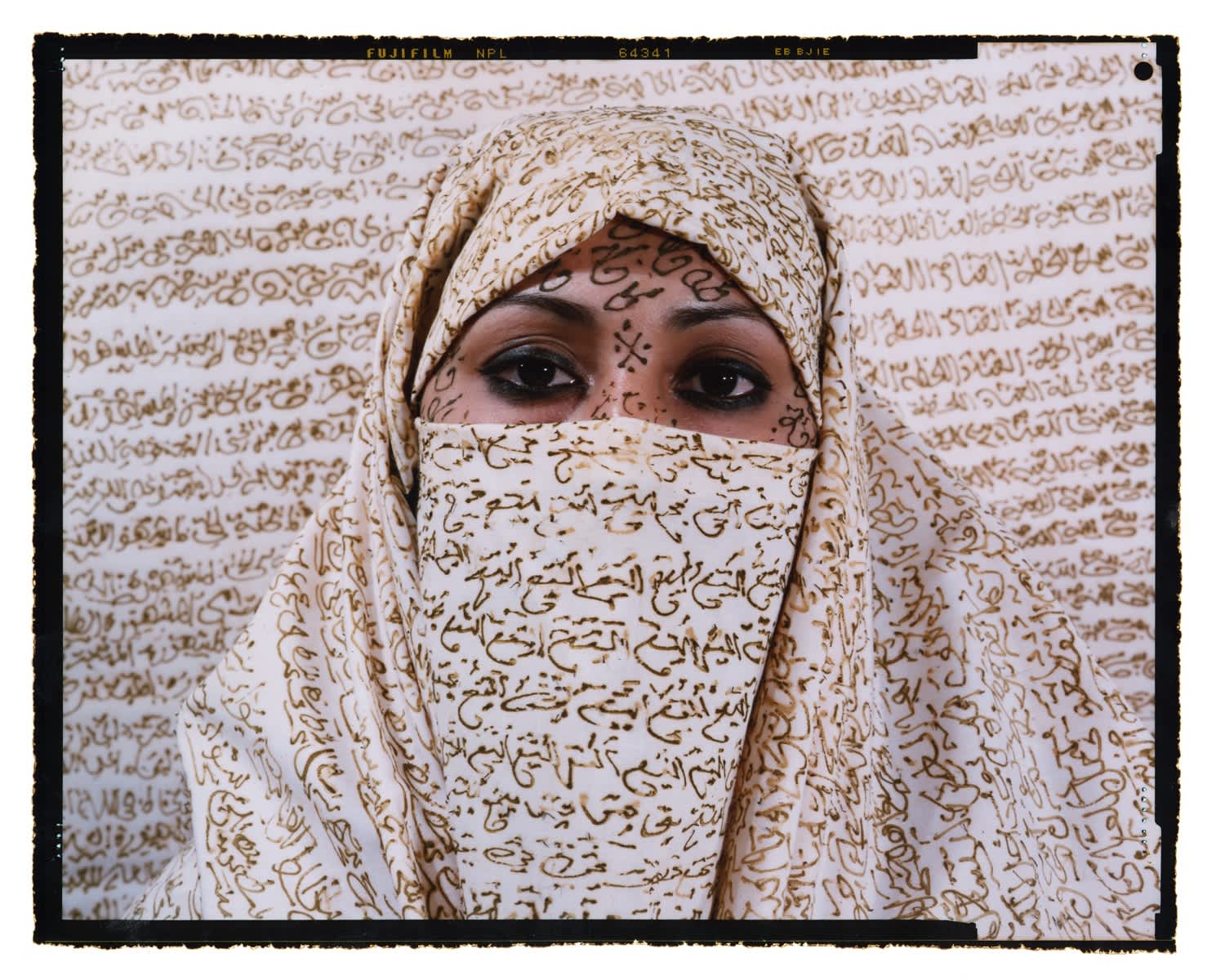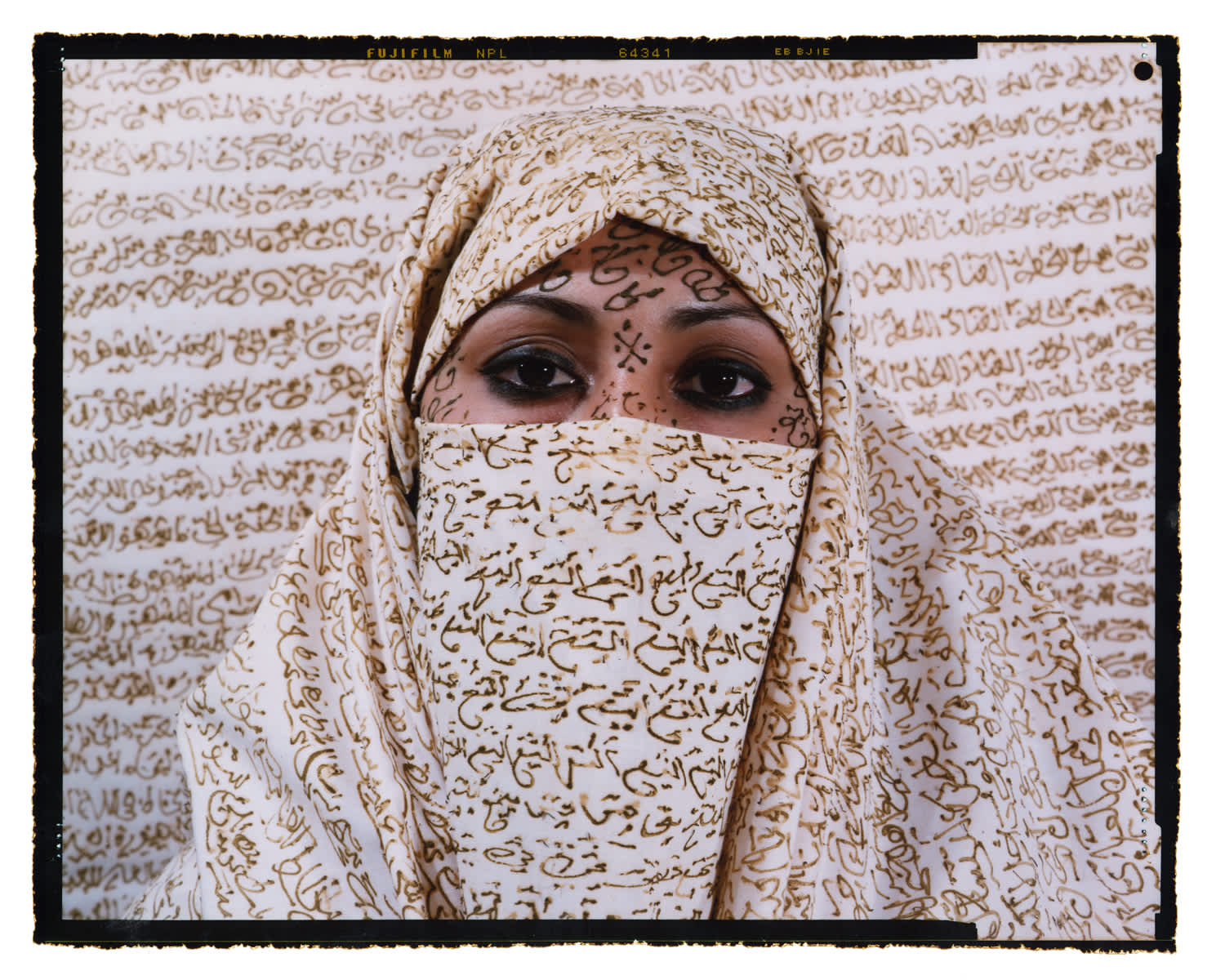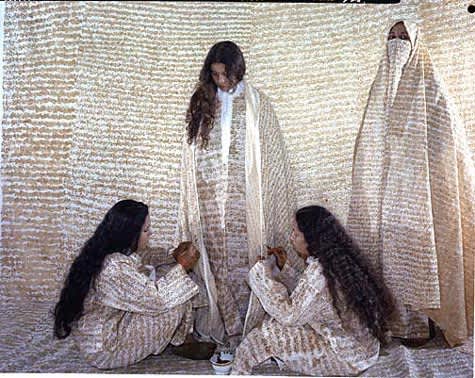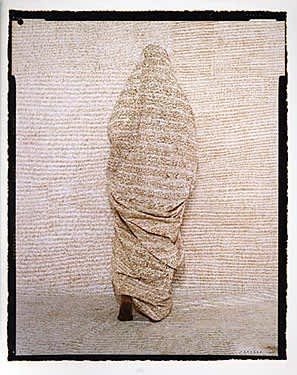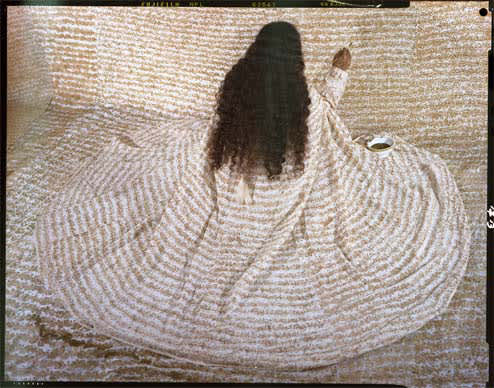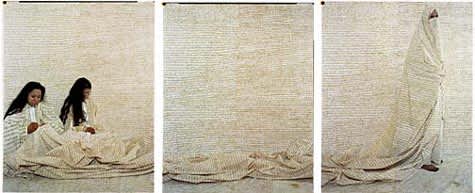Lalla Essaydi: Converging Territories
Overview
Binary relationships drive our perception of the world. We delineate between East/West, male/female, mind/body and often define ourselves by identifying with just one of opposing sides. However, the predominance of these polarizations in our culture exist only through our promulgation of their validity. Moroccan photographer Lalla Essaydi subverts and fuses these dualities as they relate specifically to her own experience as a Muslim woman now living in the United States. In her series Converging Territories, through her exploration to find her own individual voice, she unravels our own general comprehension of identity. In order to make these photographs Essaydi returned to Morocco, to a family owned house where “disobedient” women were banished to confinement and silence. Employing the traditional female activity of henna, she covered virtually every surface with Islamic calligraphy, a practice usually reserved only for men. In the text, which is continuously repeated, she analogizes her life to a book in which pages have been ripped out and some chapters unwritten. The women in the photographs had to keep their identities secret, but felt compelled to participate in order to “contribute to the greater emancipation of Arab women” as well as convey to Western audiences “their very rich traditions, often misunderstood in the West.” Essaydi’s layering of tradition, translation, and appropriation demonstrates that our cultural and social hierarchies must be overthrown and disassembled in order to truly understand ourselves.
